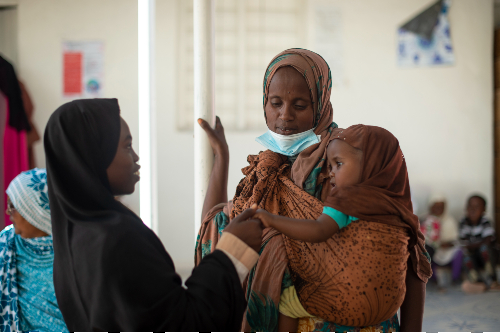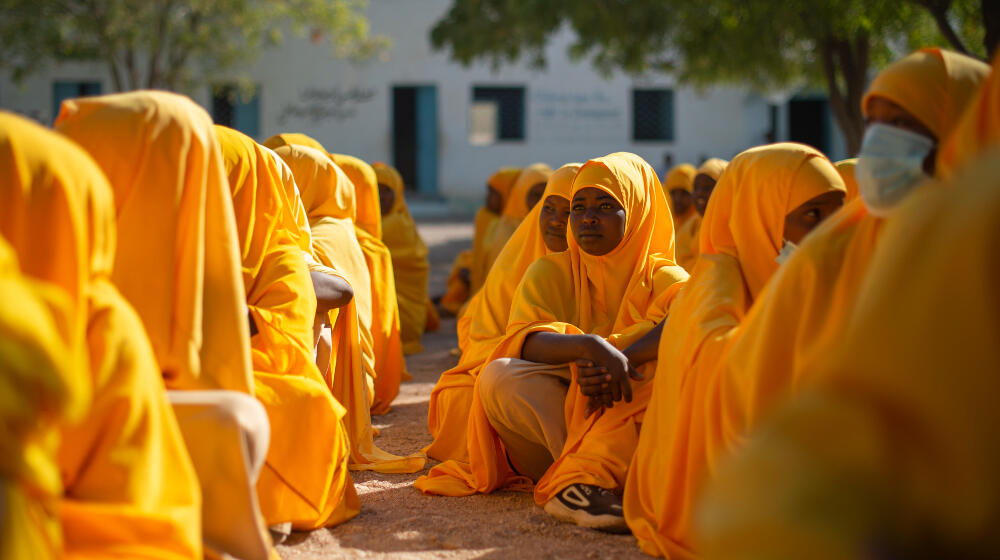MOGADISHU, Somalia – When Halima* was eight, she underwent female genital mutilation under the blade of her mother, a traditional birth attendant (TBA). “The procedure was painful, with no anaesthesia. I bled for days,” she recalled. “I was in bed for more than three months and urinating was a problem.”
When she reached adolescence, passing menstrual blood was difficult. As a newlywed, sex with her husband was painful. And as an expectant mother, childbirth was excruciating with labour dangerously lasting for days.
Despite her suffering, she allowed her first daughter to be cut. “My daughter underwent a type of FGM that consist removing a part or all of the clitoris], and she felt the pain I have been through,” Halima said. But because it was not the more severe pharaonic type (stitching the opening closed), people insulted them, saying her daughter was unclean.
Halima, 50, a mother of five daughters and five sons, now lives at an internally displaced persons (IDP) camp on the outskirts of the capital, home to 280 households that fled Danunay village nearly 250 kilometres away because of insurgent violence. She is also a camp gatekeeper, or a community member with influence. Which made her the ideal person to help end the harmful practice she and her daughter endured.
By the numbers
According to the 2020 Somali Health and Demographic Survey 99 per cent of women 15 - 49 in Somalia have been subjected to female genital mutilation, the majority between ages five and nine. The survey also reports that 72 per cent of women believe it is an Islamic requirement, though some religious leaders have said Islam condemns it. COVID-19 has raised the risk for girls to undergo the practice by disrupting preventive programmes or with school closures that parents can use to give their daughters more time to heal.
In 2020, UNFPA provided 52,225 Somali women and girls protection, prevention or care services related to female genital mutilation. While there is no national legislation outlawing the practice, Puntland state passed a FGM Zero Tolerance Bill last year.
A new way forward
As part of UNFPA and the Ifrah Foundation’s Dear Daughter campaign, Halima and other influential women in the camp learned about the harmful effects of female genital mutilation, and she shared her personal experience at workshops. “Throughout the training course, I had flashback memories of how FGM has badly impacted my life,” she said.
Three years ago, a young girl in the camp died as a result of female genital mutilation. Now Halima is galvanizing the community so that tragedy is never repeated. And the foundation with the Global Media Campaign to End FGM distributed UNFPA-supplied radio transmitters to 100 households so residents could listen to awareness campaigns. "It has been a long-standing dream of mine to work to save girls from the unnecessary pain and suffering I endured as a result of FGM,” said survivor Ifrah Ahmed, founder of her namesake foundation. “Halima is an example of how we can change the future for all Somali girls.”

The campaign, launched last fall, “is accelerating the voices of women and men alike to end FGM in Somalia,” said Nkiru I. Igbokwe, gender-based violence specialist at UNFPA in Somalia. “It targets rural and urban individuals and communities that are undertaking extraordinary actions within their sphere of influence to change the FGM narrative.”
Halima’s advocacy has expanded beyond female genital mutilation. She encourages pregnant and lactating mothers to visit health centres and raises awareness on sexual and gender-based violence cases. She notes that community members used to stay silent about rape due to fear of stigmatization but now they seek help.
Because of her leadership, almost 100 mothers including Halima’s own and other TBAs have pledged not to practice female genital mutilation, sparing about 200 girls in the settlement. “I don’t want my other daughters and other young girls to go through the pain we have gone through,” she said.
*Name changed for privacy and protection





